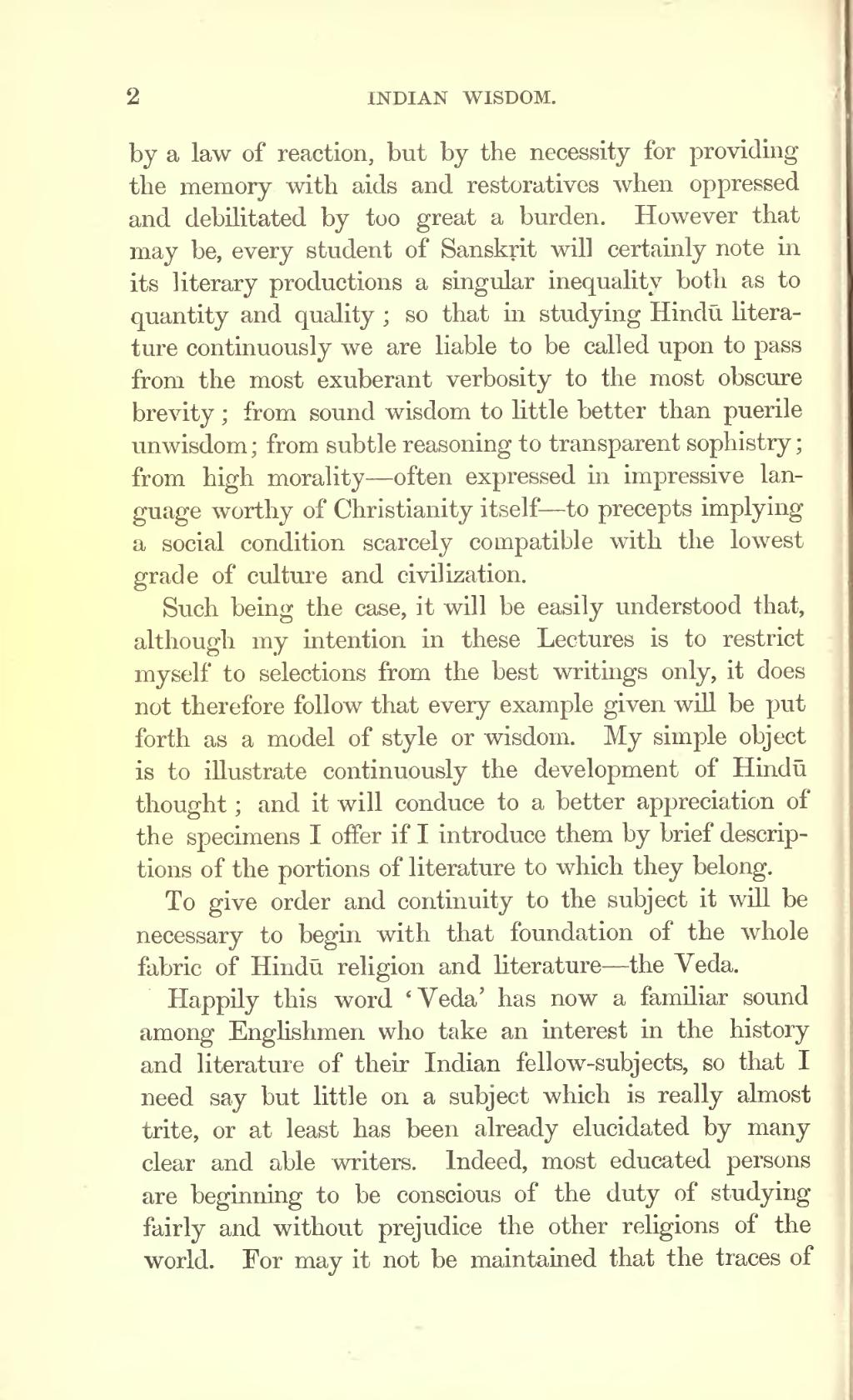by a law of reaction, but by the necessity for providing the memory with aids and restoratives when oppressed and debilitated by too great a burden. However that may be, every student of Sanskrit will certainly note in its literary productions a singular inequality both as to quantity and quality; so that in studying Hindu literature continuously we are liable to be called upon to pass from the most exuberant verbosity to the most obscure brevity; from sound wisdom to little better than puerile unwisdom; from subtle reasoning to transparent sophistry; from high morality—often expressed in impressive language worthy of Christianity itself—to precepts implying a social condition scarcely compatible with the lowest grade of culture and civilization.
Such being the case, it will be easily understood that, although my intention in these Lectures is to restrict myself to selections from the best writings only, it does not therefore follow that every example given will be put forth as a model of style or wisdom. My simple object is to illustrate continuously the development of Hindu thought; and it will conduce to a better appreciation of the specimens I offer if I introduce them by brief descriptions of the portions of literature to which they belong.
To give order and continuity to the subject it will be necessary to begin with that foundation of the whole fabric of Hindu religion and literature—the Veda.
Happily this word 'Veda' has now a familiar sound among Englishmen who take an interest in the history and literature of their Indian fellow-subjects, so that I need say but little on a subject which is really almost trite, or at least has been already elucidated by many clear and able writers. Indeed, most educated persons are beginning to be conscious of the duty of studying fairly and without prejudice the other religions of the world. For may it not be maintained that the traces of
